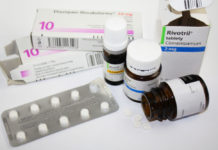The Angel Program, a recently launched program by the Gloucester Police Department that offers direct referral for drug detoxification or rehabilitation treatment, has proven successful in its nascent stages, according to a recent article published in the New England Journal of Medicine.
Researchers from Boston Medical Center and Boston University found that during the first year of the program, 376 people requested assistance from police to receive treatment for their substance use disorders. Of those, almost 12 percent lived in Gloucester, nearly 25 percent lived in the surrounding county, almost 17 percent were homeless, and nearly 6 percent were from out-of-state. The remainder came from elsewhere in Massachusetts.
The Angel Program is a voluntary, no-arrest program where people dealing with a substance use disorder can walk into a police station and get help. Police collect demographic information and call treatment centers to identify a facility for placement. They also offer participants access to transportation to the treatment center.
The direct referral rate of the program was 94.5 percent, which is higher than referral rates for hospital-based initiatives. Researchers found that 95 percent of people who were offered treatment entered their assigned treatment program. Follow-up calls made in the first nine months of the program reached 57 percent of participants, and of those, 85 percent confirmed participation in the Angel Program.
The model of the Angel Program has been adopted in 28 states by 153 police departments.
There were more opioid overdoses in the first nine months of 2016 than during the same period in 2015, according to the Massachusetts Department of Public Health. Roughly 176 people died of opioids in Massachusetts in September 2016 alone. The majority of unintentional opioid overdose deaths in Massachusetts took place in Middlesex, Suffolk and Essex counties.
Massachusetts has taken several steps to address the growing problem of substance use disorder in the state. Last March, Gov. Charlie Baker signed the Compromise Opioid Bill, which limits… (continue reading)
















